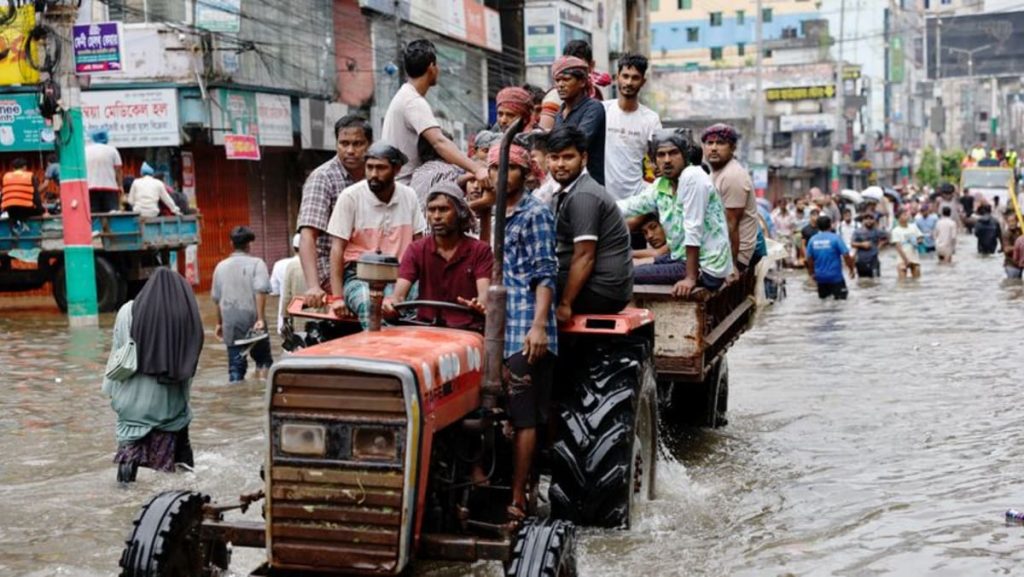Abdul Halim, a 65-year-old farmer from a village in the Comilla district, experienced the sudden destruction of his mud hut by a surge of 3-metre-high floodwater in the middle of the night. He expressed his struggles with lack of goods and water, as well as the difficulty in accessing relief aid deep within the villages, prompting residents to physically go close to the main road to collect it. This highlighted the challenges faced by rural communities in Bangladesh amid devastating floods.
Despite the allegations by some people in Bangladesh that the floods were caused by the opening of dam sluice gates in neighbouring India, New Delhi has rejected this assertion. The issue raised concerns about potential cross-border management of water resources and the need for cooperation to prevent future flooding situations. Bangladesh’s water resources minister, Zahid Faruk, mentioned discussions with neighbouring countries to address these challenges and mitigate the impact of floods on vulnerable communities.
The impacts of the floods were felt not only by Abdul Halim and his village in Comilla, but also by many others across Bangladesh. The devastation caused by the floodwaters forced residents to seek relief aid and basic necessities, highlighting the urgent need for support and assistance in affected areas. The lack of access to goods and water exacerbated the difficulties faced by rural communities, compounding their already challenging living conditions.
As the floods continued to ravage parts of Bangladesh, efforts were made to address the underlying causes of the disaster and prevent future flood situations. The government engaged in discussions with neighbouring countries to explore avenues for cooperation in managing water resources and potential flood risks. The aim was to enhance preparedness and resilience in the face of natural disasters, such as floods, which posed significant threats to vulnerable communities in Bangladesh.
Abdul Halim’s experience served as a reminder of the devastating impact of natural disasters on rural communities in Bangladesh, where homes and livelihoods were often at risk during floods. The need for improved disaster preparedness and response mechanisms was evident, as residents struggled to cope with the aftermath of the flooding. Efforts to provide relief aid and support to affected areas were crucial in helping residents recover and rebuild their lives in the wake of the disaster.
In conclusion, the challenges faced by Abdul Halim and his village in Comilla reflected a larger issue of vulnerability and resilience in Bangladesh’s rural communities. The government’s engagement with neighbouring countries to address the root causes of flooding and mitigate future risks demonstrated a commitment to enhancing disaster management and response mechanisms. The urgent need for relief aid and basic necessities highlighted the importance of timely assistance in the wake of natural disasters, such as floods, which continued to pose threats to vulnerable populations in Bangladesh.


